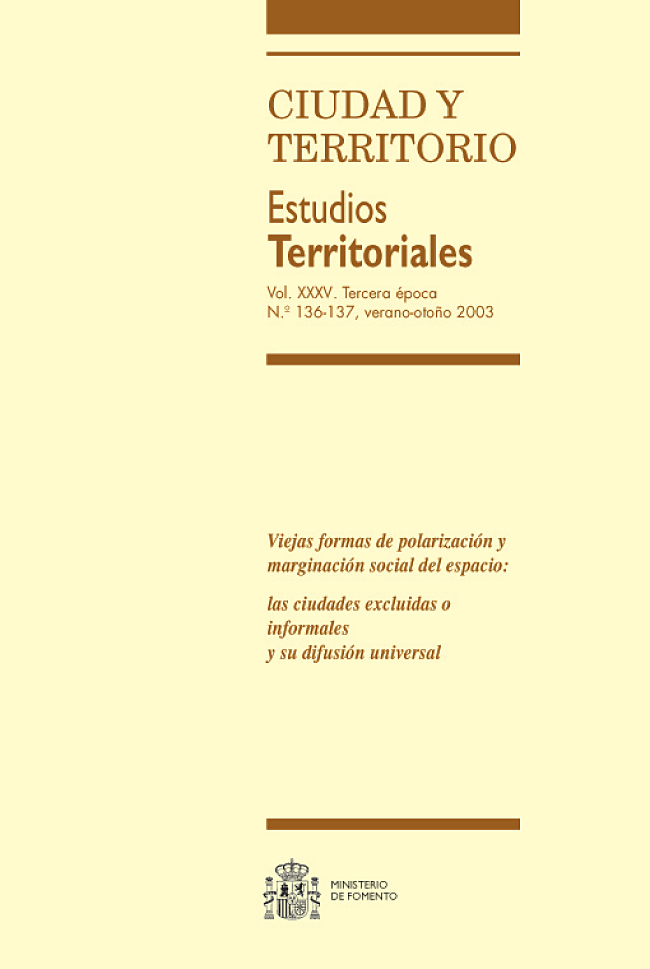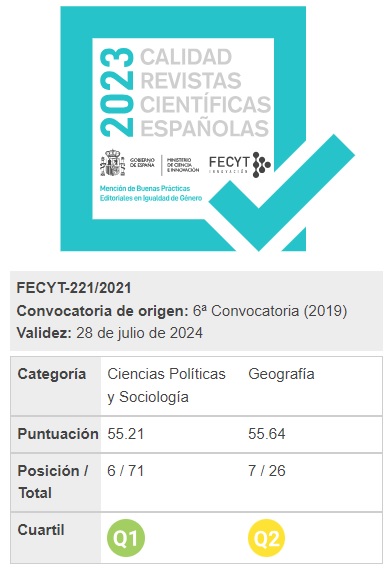Self-help Housing Solutions in Post_War Athens.
Keywords:
Auto-promoción, auto-construcción, vivienda marginal, urbanizaciones ilegales, Atenas (Grecia)Abstract
The paper gives an overview of those self-help promotions that served to integrate the rural drift to the
then rapidly expanding city during the early post war years by offering cheap housing in the context of a weakly
developed welfare state. The upsurge of this self-help promotion and home-made building is held to be tightly
bound in with that Southern Europe world in which it took place where the building of cities has not been
a spin-off of industrial development and an expanding labour market but rather the upshot of a drifting in
from the countryside in the wake of war and rural decline. Housing, the paper explains, here played a much
more signal role than jobs when it came to settling in this vast influx of newcomers within the society of the
great cities of Greece. The importance of self-help building in the earliest post war years is closely tied in
with cut backs in direct state intervention, a phenomenon in marked contrast with what then held true in
the industrialised countries of Northern Europe. Reduced direct state intervention left the field open for
private Initiative, especially upon the part of families, to cater for housing needs in ways that Combined cheap
access to home ownership and clientelism, all of which gave rise to peculiar forms of social cohesion. For the
author, the legacy of self-help building in Athens could well be compared to that of the large council housing estates in other countries given that both, while having resolved an immediate crisis need have saddled society with those considerable zones of poor quality dwellings that have twilighted badly as the operation of market mechanisms came to determine the question of who dwelt where.
Downloads
Downloads
Published
How to Cite
Issue
Section
License
Copyright (c) 2003 Thomas Maloutas

This work is licensed under a Creative Commons Attribution-NonCommercial-NoDerivatives 4.0 International License.
Considering the provisions of the current legislation on Intellectual Property, and in accordance with them, all authors publishing in CyTET give -in a non-exclusive way and without time limit- to the Ministry of Transport, Mobility and Urban Agenda the rights to disseminate, reproduce, communicate and distribute in any current or future format, on paper or electronic, the original or derived version of their work under a Creative Commons Attribution-NonCommercial-NoDerivative 4.0 license International (CC BY-NC-ND 4.0), as well as to include or assign to third parties the inclusion of its content in national and international indexes, repositories and databases, with reference and recognition in any case of its authorship.
In addition, when sending the work, the author(s) declares that it is an original work in which the sources that have been used are recognized, committing to respect the scientific evidence, to no longer modify the original data and to verify or refute its hypothesis. Author(s) also declare that the essential content of the work has not been previously published nor will it be published in any other publication while it is under evaluation by CyTET; and that it has not been simultaneously sent to another journal.
Authors must sign a Transfer of Rights Form, which will be sent to them from the CyTET Secretariat once the article is accepted for publication.
With the aim of promoting the dissemination of knowledge, CyTET joins the Open Journal Access (OA) movement and delivers all of its content to various national and international indexes, repositories and databases under this protocol; therefore, the submission of a work to be published in the journal presupposes the explicit acceptance by the author of this distribution method.
Authors are encouraged to reproduce and host their work published in CyTET in institutional repositories, web pages, etc. with the intention of contributing to the improvement of the transfer of knowledge and the citation of said works.








 Enlace a CyTET en Linkedin
Enlace a CyTET en Linkedin